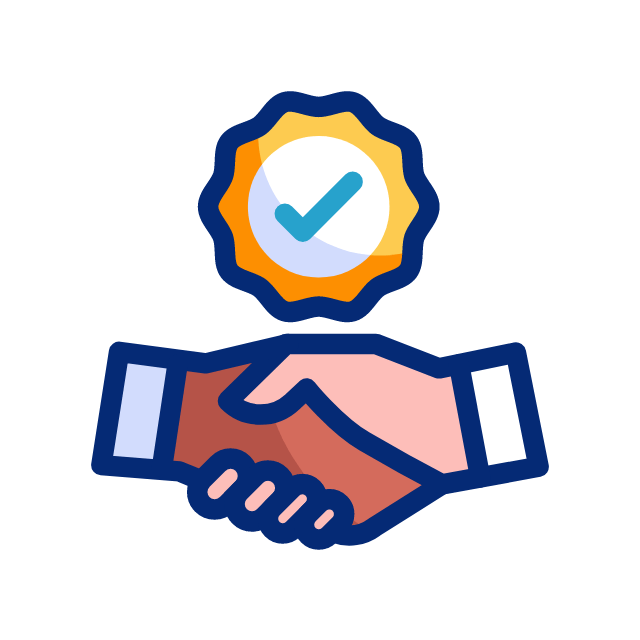Introduction
Hello everyone, good evening. I'm GK. I have a background in civil engineering and have transitioned into the government sector from a technical background. I appeared for the Indian Engineering Services (IES) exam and cleared the mains twice, appearing for the interview both times. I also appeared for the Rajasthan Public Service Commission (RPSC) examination for the civil engineering department. Currently, I'm working in the Water Resources Department, where I've been for the past few years.
I completed my Master's in Structural Engineering from IIT Roorkee, and I have industrial experience working with Larsen & Toubro (L&T) Construction Company. Over the years, I've gathered a wealth of knowledge, and today I'd like to share my experiences and insights with you. Our discussion will focus on the government sector, how I approached these competitive exams, my strategies, mindset, and the opportunities available for both bachelor's and master's students who wish to enter the government sector.
Starting Your Preparation :
After completing a B.Tech in civil engineering, students often find that the private sector doesn't offer as many lucrative opportunities compared to fields like IT. The packages aren't as attractive, and the job market can be limited. As a result, many students consider government exams as a safer and more stable option.
However, these exams are challenging. They typically cover the entire engineering syllabus across multiple papers and subjects. For example, the exams might consist of two papers covering 18 to 19 subjects, each with 15 to 20 chapters. With around 100 to 200 questions in the exam, this translates to about 15 to 20 questions per subject, or roughly one question per chapter.
To tackle this vast syllabus effectively, I divided my strategy into three parts:
-
Study Plan: How to approach and cover the syllabus.
-
Exam Attempt Strategy: How to effectively attempt the exam.
-
Paper Analysis: How to analyze your performance after each exam or mock test.
I'll explain each of these points in detail.
1. Study Plan: How to Approach and Cover the Syllabus
Prioritize Key Subjects and Topics
-
Identify Important Subjects: It's crucial to decide which subjects and topics to focus on. Not all topics carry the same weight in the exam.
-
Focus on High-Yield Topics: Concentrate on topics that are frequently asked and carry more marks.
-
Avoid Overemphasis on Favorite Subjects: Many students spend excessive time on subjects they like, aiming for 100% mastery. However, achieving 90-95% proficiency is often sufficient to answer 95% of the questions from that subject.
-
Allocate Time Wisely: Don't let your favorite subjects consume the time you should allocate to other important subjects.
Detach from Favorite Subjects and Embrace All Topics
-
Some subjects might seem boring or challenging, but they can be easy to score if you invest time in understanding them.
-
For example, a subject requiring two months of study might fetch you the same marks as a subject that takes five months. Analyze the cost-benefit ratio.
-
Learn to Detach: Detach yourself from your favorite subjects and focus on those that are equally important but might not interest you as much.
Customized Strategy for Each Exam
-
Exam-Specific Preparation: Each exam (like GATE, IES, state exams, SSC) has its own pattern and emphasis. Tailor your preparation accordingly.
-
Analyze Previous Years' Papers: Look at the last 15-20 years of question papers to identify trends in subject weightage and frequently asked topics.
-
Seek Guidance: If possible, get guidance from experts or mentors who have experience with the exam. They can help you focus on the right topics and avoid wasting time.
Time Management
-
Plan Your Schedule: Use a diary or planner to schedule your study topics weekly.
-
Revision is Key: Plan for multiple revisions—aim to revise topics at least 7-8 times.
-
Quality Over Quantity: It's better to thoroughly prepare selected topics that cover 90% of the questions than to have superficial knowledge of everything.
2. Exam Attempt Strategy: How to Effectively Attempt the Exam
Practice with Mock Exams
Overcoming Fear and Building Confidence
-
Frequent Practice: The more exams you take, the less fear you'll have.
-
Don't Skip Tough Questions in Practice: In mock tests, try not to skip difficult questions. This builds resilience and problem-solving skills.
-
Analyze Your Mistakes: Understand why you got a question wrong to avoid repeating the same mistakes.
Developing Exam Strategy
-
Question Selection: Learn to identify which questions to attempt first. Prioritize easier questions to secure marks.
-
Time Management: Allocate time wisely among questions. Don't spend too long on any single question.
-
Balance Speed and Accuracy:
-
High Speed with Low Accuracy: Leads to negative marking and lower overall scores.
-
High Accuracy with Slow Speed: May result in unanswered questions.
-
Aim for Optimal Performance: Strive for a balance where you can answer questions accurately within the given time.
3. Paper Analysis: How to Analyze Your Performance
Post-Exam Review
-
Analyze Mistakes: After each mock test, review the questions you got wrong or left unanswered.
-
Identify Weak Areas: Determine if mistakes were due to lack of knowledge, careless errors, or time pressure.
-
Adjust Your Study Plan: Use this analysis to focus your subsequent study sessions on weak areas.
Maintain a Performance Chart
-
Track Your Progress: Keep a record of your scores, accuracy, and time taken in each mock test.
-
Monitor Improvement: Regularly review your chart to see if you're improving over time.
Utilize Technology
-
Online Test Platforms: Many online test series provide analytics on your performance, such as time spent per question.
-
Leverage Insights: Use these insights to adjust your time management and focus on topics that need improvement.
Building Pressure in Practice
-
Simulate Exam Pressure: Build up pressure during mock exams to prepare for the real exam environment.
-
Adjust Timing: Practice completing exams slightly faster than the allotted time to give yourself a buffer.
Additional Tips for Preparation :
Improve Calculation Speed
Avoid Over-Reliance on Calculators
-
Initial Preparation: Try to solve calculations manually to improve mental math skills.
-
Final Preparation: Closer to the exam, practice using the online calculator provided in exams like GATE to become familiar with its functions.
Simulate Exam Conditions
-
Match Exam Timings: If your exam is scheduled from 9 am to 12 pm, practice taking mock tests during that time to align your biological clock.
-
Create Exam Environment: Sit in a quiet place without interruptions to mimic real exam settings.
Strategies for Theoretical Exams :
For exams that include descriptive or theoretical questions, such as IES mains or state-level exams, the approach is slightly different.
Time Management in Answers
-
Allocate Time Based on Marks: Spend time on questions proportional to their mark allocation.
-
Be Concise for Low-Mark Questions: For 5-mark questions, write brief, direct answers—typically a paragraph or bullet points.
-
Expand on High-Mark Questions: For 20-mark questions, provide detailed explanations, including diagrams and examples if necessary.
-
Avoid Overwriting: Don't write more than necessary, especially for questions with lower marks.
Presentation Matters
-
Clarity and Legibility: Write neatly to make it easy for examiners to read your answers.
-
Structured Answers: Use headings, bullet points, and tables where appropriate.
-
Highlight Key Points: Underline or highlight important phrases to draw the examiner's attention.
-
Use of Multiple Pens: If allowed, use different colored pens to differentiate headings and key points.
Improve Writing Skills
Interview Preparation and Experience
After clearing the written exams, the next stage is the interview or personality test.
Driving the Interview
-
Lead the Conversation: You can steer the interview towards your strengths by mentioning projects, internships, or experiences you're confident about.
-
Prepare Common Questions: Have well-thought-out answers for typical questions like "Tell me about yourself," "What are your strengths and weaknesses," etc.
-
Connect Your Experiences: Weave your achievements and experiences into your answers to showcase your capabilities.
-
Create Interest: Mention unique aspects of your background to pique the interviewers' interest.
Handling Technical Questions
-
Honesty is Key: If you don't know an answer, admit it politely rather than attempting to bluff.
-
Stay Calm Under Pressure: The interviewers may test how you handle stressful situations.
-
Don't Bluff: Attempting to deceive the panel can backfire and negatively impact their perception of you.
Qualities They Look For
-
Confidence: Present yourself confidently without being arrogant.
-
Role-Specific Traits: Depending on the position, they may look for leadership, teamwork, problem-solving abilities, and adaptability.
-
Communication Skills: Articulate your thoughts clearly and concisely.
-
Professionalism: Display a professional attitude and demeanor.
Understanding the Interview Panel
-
Diverse Panel: The panel may include professors, industry experts, and civil servants.
-
Tailor Your Responses: Be prepared to answer questions from different perspectives—technical, conceptual, and personality-based.
Personal Qualities for Success :
Focus and Determination
-
Set Clear Goals: Know which exam you're targeting and align your preparation accordingly.
-
Avoid Distractions: Limit activities that don't contribute to your goal during your preparation time.
-
Consistency: Maintain a steady and disciplined study routine.
Consistency and Hard Work
-
Regular Study Routine: Allocate dedicated study hours each day.
-
Persistence: Be prepared to put in sustained effort over a long period.
-
Self-Motivation: Keep yourself motivated through the highs and lows of the preparation journey.
Self-Control
-
Learn to Say No: Decline activities or invitations that may hinder your preparation.
-
Manage Social Media: Limit time on social platforms to stay focused.
-
Healthy Lifestyle: Maintain a balanced diet and get adequate rest to keep your mind sharp.
Is It Worth the Effort?
Many students wonder if the intense preparation for government exams is worth it. From my personal experience:
Balanced Life
-
Work-Life Balance: Government jobs often provide a better balance between professional and personal life.
-
Job Security: There's stability and less stress compared to some private-sector roles.
-
Time for Family and Hobbies: You have ample time to spend with family and pursue other interests.
Personal Satisfaction
-
Public Service: Working in the government sector allows you to contribute to society and make a tangible impact.
-
Growth Opportunities: There are opportunities for advancement and taking on significant responsibilities.
-
Decent Compensation: While the salary may be less compared to certain private-sector jobs, it's sufficient for a comfortable life.
Consider Your Priorities
-
Financial Goals: If high earnings are your primary goal, the private sector or entrepreneurship might offer better opportunities.
-
Career Aspirations: Assess what you want from your career—stability, impact, financial gains, etc., and choose the path that aligns with your aspirations.
-
Long-Term Vision: Think about where you see yourself in the future and whether a government job aligns with that vision.
Be Informed Before Deciding
-
Research: Understand the roles and responsibilities associated with the job you're aiming for.
-
Talk to Professionals: Speak with people already working in the field to get firsthand insights.
-
Analyze Pros and Cons: Every job has its advantages and disadvantages; weigh them according to your personal preferences.
Final Thoughts :
-
Informed Decision: Before embarking on this journey, ensure that it aligns with your career goals and personal values.
-
Preparation is Half the Journey: Clearing the exam is just the beginning. Be prepared for the role and responsibilities that come after.
-
Stay Positive and Motivated: The journey is challenging but can be rewarding if it aligns with your goals.
-
Self-Reflection: Regularly reflect on your progress and adjust your strategies as needed.
Thank you for your time, and I hope my experiences and insights help you in your preparation. If you have any questions or need further guidance, feel free to reach out. Best of luck with your endeavors!

























